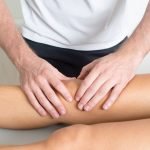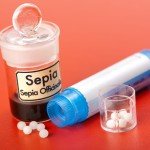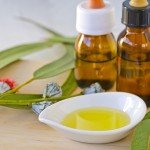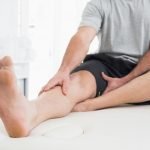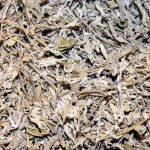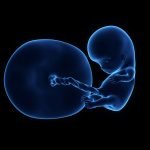Herbs for Sperm Disorders
Eric Yarnell, ND, RH(AHG)
Decreasing sperm counts and impaired function leading to reduced fertility are a major problem in the Western world, and growing worse. Numerous reports have documented declining mean sperm counts and increasing rates of asthenospermia in developed nations over the past 50 years (Carlsen et al., 1992; Auger et al., 1995). These trends have been increasingly connected with environmental pollution and unhealthy lifestyle choices, including but not limited to high-stress jobs with inadequate compensation for this stress.
The three major groups of herbs that are helpful for male infertility are adaptogens, antioxidants, and hormone modulators. Adaptogens work in multiple ways to counteract the negative effects of stress. They affect the hypothalamic-pituitary-adrenal axis, and influence the thyroid, central nervous system, and immune system. Antioxidants obviously protect sperm from free radical damage, which is often a significant factor in male infertility.
Adaptogens and Infertility
Adaptogens are indicated in general for men with infertility due to sperm problems in Western civilization. They are most indicated when there is accompanying chronic stress, which is almost universal. The two adaptogens that have received the greatest research for improving sperm quality and quantity are Astragalus membranaceus and Panax ginseng (Asian ginseng) roots.
In one open trial, 4 g of an extract of Asian ginseng daily raised sperm counts, decreased serum prolactin levels, and raised serum testosterone levels in men with oligospermia, asthenospermia, or in men with apparently normal sperm (Salvati et al., 1996). In another preliminary trial, healthy men were given a standardized extract of Asian ginseng (Mkrtchyan et al., 2005). There was a decrease in the percentage of dysfunction sperm compared with baseline. While clearly these results need confirmation in more rigorous trials, Asian ginseng should be included in herbal protocols for most men with sperm abnormalities.
Astragalus has not yet been shown effective in any human clinical trials, though it is a standard part of many formulas in traditional Asian medicine for infertility. In vitro it has been documented to enhance sperm motility, and in rats it has protected sperm against the negative effects of cadmium toxicity (Hong et al., 1992; Liang et al., 2004).
Typical doses of Asian ginseng (or Panax quinquefolius, American ginseng) dried root are 1-3 g three times per day, or 3-5 ml of tincture three times per day. Astragalus doses are similar but up to 5 g three times per day can be used.
Other adaptogens can also be used to help improve sperm number and function. Though clinical trials are not yet available on their efficacy, clinically they have been found to be effective. This allows one to choose based on secondary properties of the herbs and based on bioregion. This topic was discussed in depth in the June 2006 issue of NDNR.
Antioxidant Herbs
Numerous botanically derived antioxidant constituents have been studied to help remedy sperm problems. This helps validate the clinical practice of using antioxidant herbs and supplements in this population.
Astaxanthin (12 mg per day), a carotenoid found in algae and the sea creatures that eat algae, has been shown to have beneficial effects on sperm function in infertile men significantly superior to those of placebo (Comhaire et al., 2005). Lycopene at a relatively low dose of 2 mg twice daily also showed a pronounced ability to improve sperm count, though only in men who started with a sperm count above 5 million/ml (Gupta and Kumar, 2002).
Vitamin antioxidants have also proven highly effective in infertile men. In one clinical trial, men who had failed intracytosolic sperm injection (ICSI), a standard therapy for infertile couples due to sperm problems, were treated with vitamins C and E, 1 g of each, daily for two months (Greco et al., 2005). After this period, pregnancy rates jumped to almost 50%. This indirectly suggests that antioxidant from herbs, which are at least as potent as vitamins C and E, may have an important role in treating male infertility.
Hormone-Modulating Herbs
If hormonal problems are a factor in sperm disorders, then herbal medicines may have a role to play. Though this area is poorly researched, there is at least one animal study showing the promise of these herbs. Resveratrol, an antioxidant phytoestrogen found in various plants, has been shown to induce dramatic increases in sperm count secondary to elevated testosterone levels in rats (Juan et al., 2005).
Other hormone-modulating herbs to consider include Vitex agnus-castus (chaste tree) and Verbena spp. (vervain), which act in the pituitary to regulate hormone levels; Chamaelirium luteum (false unicorn), a poorly researched general hormone modulator; phytoestrogens such as Glycyrrhiza glabra (licorice) if estrogen exposure is excessive; and Tribulus terrestris or Epimedium spp. (yin yang huo) if testosterone levels are low. All these have shown some benefits empirically in selected patients.
Formulating for Male Infertility
To show the potential benefits of combining several categories of herbs into a formula, one has only to look to Japanese herbal medicine. Sairei-to is a traditional herbal formula that contains a mixture of adaptogens, antioxidants, and hormone-modulating herbs (see sidebar). In an open trial, men with abnormal sperm counts or function were given 9 g of the formula as a decoction for three months (Suzuki et al., 2003). There was a significant improvement in sperm counts and motility compared with baseline. There was also an improvement in blood flow through the testicular artery.
There is great promise for herbal medicines to help correct sperm abnormalities. It is hoped that many more clinical trials will be conducted to demonstrate this benefit. In the meantime, existing traditional and research knowledge can be combined as part of a protocol to help many men help create viable pregnancies.
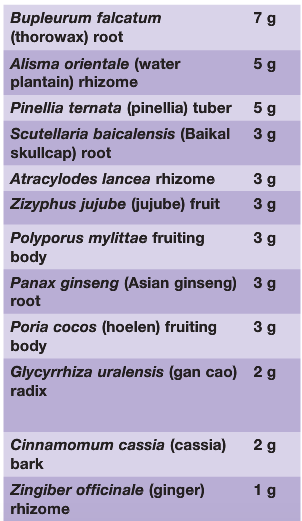 References
References
Auger J et al: Decline in semen quality among fertile men in Paris during the past 20 years, New Engl J Med 332:281-5, 1995.
Carlsen E et al: Evidence for decreasing quality of semen during the past 50 years, Br Med J 305:609-13, 1992.
Comhaire FH et al: Combined conventional/antioxidant ‘Astaxanthin’ treatment for male infertility: a double blind, randomized trial, Asian J Androl 7(3):257-62, 2005.
Greco E et al: ICSI in cases of sperm DNA damage: beneficial effect of oral antioxidant treatment, Hum Reprod 20(9):2590-4, 2005.
Gupta NP, Kumar R: Lycopene therapy in idiopathic male infertility—a preliminary report, Int Urol Nephrol 34(3):369-72, 2002.
Hong CY et al: Astragalus membranaceus stimulates human sperm motility in vitro, Am J Chin Med 20:289-94, 1992.
Juan ME et al: Trans-Resveratrol, a natural antioxidant from grapes, increases sperm output in healthy rats, J Nutr 135(4):757-60, 2005.
Liang P et al: Effects of Astragalus membranaceus injection on sperm abnormality in Cd-induced rats, Zhonghua Nan Ke Xue 10(1):42-5, 48, 2004. [in Chinese]
Mkrtchyan A et al: A phase I clinical study of Andrographis paniculata fixed combination Kan Jang versus ginseng and valerian on the semen quality of healthy male subjects, Phytomedicine 12(6-7):403-9, 2005.
Salvati G et al: Effects of Panax ginseng CA Meyer saponins on male fertility, Panminerva Med 38:249-54, 1996.
Suzuki M et al: Effects of antioxidant treatment in oligozoospermic and asthenozoospermic men, J Reprod Med 48(9):707-12, 2003.
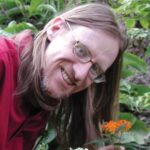 Eric Yarnell, ND, RH(AHG), is a graduate of Bastyr University. He completed a two-year residency with Silena Heron, ND, and served as chair of botanical medicine at the Southwest College of Naturopathic Medicine. He is past senior editor of the Journal of Naturopathic Medicine. Dr. Yarnell is a founding member and current president of the Botanical Medicine Academy and author of numerous textbooks and articles including Naturopathic Urology and Men’s Health, Naturopathic Gastroenterology, and Clinical Botanical Medicine. His area of clinical focus is urology and men’s health. He is assistant professor in botanical medicine at Bastyr University.
Eric Yarnell, ND, RH(AHG), is a graduate of Bastyr University. He completed a two-year residency with Silena Heron, ND, and served as chair of botanical medicine at the Southwest College of Naturopathic Medicine. He is past senior editor of the Journal of Naturopathic Medicine. Dr. Yarnell is a founding member and current president of the Botanical Medicine Academy and author of numerous textbooks and articles including Naturopathic Urology and Men’s Health, Naturopathic Gastroenterology, and Clinical Botanical Medicine. His area of clinical focus is urology and men’s health. He is assistant professor in botanical medicine at Bastyr University.




